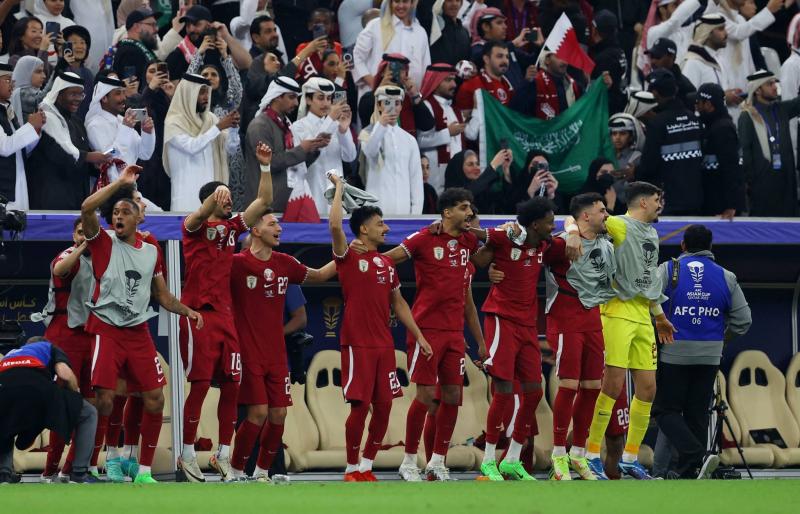The awarding of three penalties by Chinese referee Ma Ning to the host team Qatar in their match against Jordan in the Asian Cup final sparked widespread debate and discontent among Jordanian fans. Qatar received three penalties, one in the first half and two in the second half, with Qatari star Akram Afif converting them into three goals, leading his team to a 3-1 victory and securing the continental title for the second consecutive time.
Refereeing experts commented on the controversy surrounding the three penalties awarded to Qatar. Former Egyptian referee Mohamed Kamal Risha considered the first penalty earned by Akram Afif to be legitimate. He confirmed that the Chinese referee's decision to award the penalty was "correct," stating: "Afif was fouled carelessly by the defender after the Qatari attacker cleverly positioned his body in front of his opponent... It can be said that Abdullah Nseir (Jordanian defender) fell into Afif's trap in this play."
Regarding the second penalty, Syrian refereeing expert Jamal Sharif expressed his opinion: "In the 69th minute, there was an attack by the Qatari team, where Almoez Ali passed the ball that Ismail Muhammad moved towards, but Mahmoud Mardhi extended his foot and left leg against his opponent." He continued: "After returning to the Video Assistant Referee (VAR) technology, it was evident to the Chinese referee that there was a foul by the Jordanian player on his opponent, thus awarding a penalty to the Qatari team, making the decision correct."
As for the third penalty, Jamal Sharif clarified: "Akram Afif changed the ball's path from the Jordanian goalkeeper, and his right foot became the pivot here, while the goalkeeper collided with his opponent and prevented him from being able to control the ball. All conditions necessary for the award were met, and the referee's decision to award a correct penalty to Qatar was accurate, since Akram Afif was not offside, and it was justified to show the yellow card to the Jordanian goalkeeper."




